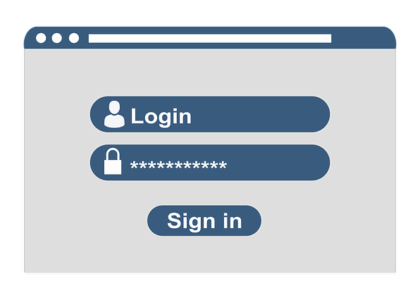In the rapidly evolving digital age, web design is no longer a luxury—it’s a necessity. With new technologies, higher user expectations, and smarter search engines, web design in 2025 requires a strategic blend of creativity, performance, and SEO. This comprehensive guide will walk you through the most important concepts, trends, tools, and actionable strategies to future-proof your website this year and beyond.
Why Web Design in 2025 Matters More Than Ever
The Shift in User Expectations
Today’s users expect speed, accessibility, interactivity, and visual appeal—all within seconds. If your website fails to meet these expectations, users will bounce and Google will notice.
Google’s Core Web Vitals Update
As of 2025, Core Web Vitals remain central to Google’s ranking algorithm. Websites that optimize for Largest Contentful Paint (LCP), First Input Delay (FID), and Cumulative Layout Shift (CLS) are rewarded with higher visibility.
Foundational Principles of Modern Web Design
1. Mobile-First Is Now Mobile-Only
Over 60% of internet traffic comes from mobile devices, and in many regions, mobile is the only access point. Design with thumb-friendly navigation, compressed visuals, and fast-loading mobile pages.
2. User-Centric Design Remains King
As we emphasized in our previous article What is the First Rule of Web Design?, putting the user first is the golden rule of web design. Everything—layout, color, content—must be crafted to meet user intent.
3. Speed & Performance
Sites that load in under 2 seconds see 15% higher conversion rates. Use tools like Google PageSpeed Insights and GTmetrix to diagnose and optimize load times.
Key Web Design Trends in 2025
1. AI-Powered Personalization
AI is transforming how websites adapt in real time. From personalized product recommendations to dynamic content changes based on behavior, AI ensures relevancy and engagement.
2. Voice-Optimized Interfaces
With over 50% of searches projected to be voice-based, web design must consider conversational UI and structured data that aligns with voice SEO.
3. Immersive 3D & Micro-Interactions
WebGL and lightweight animations allow for highly immersive, branded experiences. Subtle animations also guide users and create satisfaction.
4. Minimalist Neo-Brutalism
This hybrid design trend embraces flat color, monospaced fonts, and raw layouts. It appeals especially to tech and creative audiences.
5. Dark Mode Optimization
Dark mode isn’t just a user preference—it’s a design standard. It reduces eye strain and can improve battery life on mobile.
Design Tools You’ll Need in 2025
- Figma – Real-time design collaboration.
- Webflow – Visual development for responsive sites.
- Spline – For designing 3D experiences.
- Framer – Ideal for prototyping and interaction design.
SEO and Web Design: A Powerful Pair
Structured Data Implementation
Schema markup helps search engines better understand your content. Use tools like Schema.org and Google’s Rich Results Test to enhance your visibility.
Internal Linking Strategy
Ensure every page supports others. For example, linking back to What is the First Rule of Web Design? adds context and boosts topical authority.
Accessibility & ADA Compliance
Google favors accessible sites. Use tools like WAVE and ensure compatibility with screen readers and keyboard navigation.
UX Principles That Matter in 2025
Simplified Navigation
Mega menus are being replaced with hamburger menus and contextual navs that appear only when needed.
Scroll-triggered Storytelling
As users scroll, elements animate, morph, or reveal new layers—creating an immersive and guided experience.
Conversion-Focused Layouts
CTAs are now integrated seamlessly into content. Pop-ups are giving way to sticky headers and inline prompts.
Must-Have Elements for Every 2025 Website
- Responsive Grid Systems
- Sticky Navigation Bars
- Lazy Loading Assets
- High Contrast Color Palettes
- Live Chat or Chatbot Integration
- Inclusive Typography for Dyslexia and Visual Impairments
Common Mistakes to Avoid in 2025
- Ignoring mobile and accessibility
- Overusing animations that slow down the site
- Poor internal linking structure
- Outdated SEO practices like keyword stuffing
Case Study: How Redesign Boosted Conversions by 62%
A SaaS company revamped its outdated desktop-first website using mobile-first design, reduced load time by 60%, and integrated a live chatbot. Bounce rate dropped by 38%, and conversions soared.
Final Thoughts: Web Design is a Business Strategy
In 2025, web design is no longer a siloed discipline. It’s inseparable from SEO, user experience, branding, and business growth. Design isn’t just about looking good—it’s about performing well, converting users, and telling a story that resonates.
FAQs
1. What is the most important web design trend in 2025?
AI personalization and performance optimization top the list.
2. How does web design affect SEO?
Design affects site speed, mobile usability, accessibility, and content structure—all of which impact rankings.
3. Should I redesign my site every year?
Not necessarily, but regular audits and updates based on new trends and metrics are crucial.
4. Is dark mode good for SEO?
It doesn’t impact SEO directly but enhances UX, which Google values.
5. Where can I learn more about foundational web design?
Check out our guide: What is the First Rule of Web Design?






